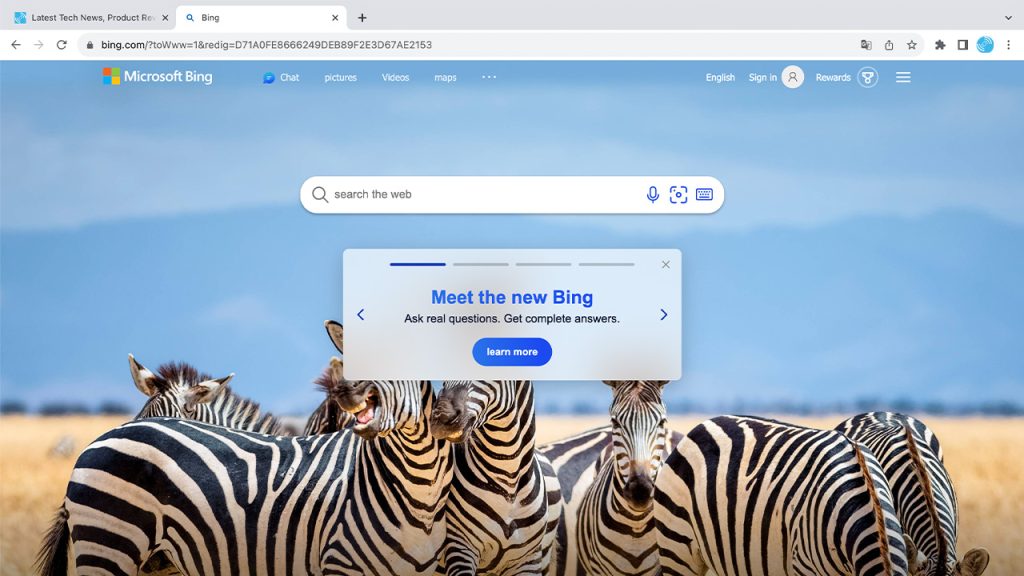Artificial intelligence is taking the internet by storm. Currently, OpenAI’s ChatGPT is leading in this field. However, Google’s Bard and Microsoft’s Bing AI are slowly closing the gap. Moreover, Microsoft has recently made a big move to attract more users by making Bing AI available on all web browsers, including Google Chrome and Apple Safari. Here are the details…
Microsoft Opens Up Bing AI to All Web Browsers, with Some Limitations
Microsoft recently made Bing AI available to Windows 11 users. However, alternative browser users, such as those on Mac and Chrome OS, were previously deprived of this AI model. Fortunately, the company has finally started rolling out Bing.com AI support to all browsers, including Google Chrome and Apple’s Safari. For example, if you use Safari on your MacBook, you can access Bing AI through your browser by clicking here without downloading or installing anything.

However, this does not mean that you will have the same experience as a Windows 11 user. Microsoft understandably sees other browsers as secondary platforms, and has imposed some restrictions on this version of Bing AI. For example, the chat feature is limited to five messages per conversation, and the character count is limited to 2,000. Additionally, Microsoft keeps showing a “Start exploring in Edge” pop-up when you open Bing.com’s AI in Chrome. If you are happy with your browser, as I am, these limits will get in your way.
Still, 2,000 characters is not a limit to be underestimated. If you ask the right questions, five messages in a single chat are more than enough. Of course, if you find that insufficient, you can download Edge for an unlimited Bing AI experience, or you can browse alternatives. Moreover, this is not Microsoft’s only surprise.
Bing AI Goes “No Search”: What Does This Mean for the Future of Search?
As you know, Bing AI actually behaves more like an advanced search engine than a chatbot. However, this is about to change, as Microsoft is also working on a new feature for Bing AI called “No search” mode. Currently, Bing AI searches the web whenever you ask it a question. This can sometimes be slow, as Bing has to crawl multiple websites and summarize the answer from scrapped content. With “No search” support, Bing could behave more like ChatGPT and respond to users using its AI capabilities, rather than crawling the web.
This is actually a very important feature, but it also carries some risks. One of the most important risks is that the concept of search is in danger. As you know, the reason I am writing this article right now is because you are reading it and making money for the platform through ad display. If search disappears and everyone controls everything they are curious about through platforms like Bing AI, we may not be needed. In this case, artificial intelligence cannot obtain new information because no content is produced. Of course, companies like Microsoft and Google can provide this information. However, this would create a monopoly on an important issue such as information.
Obviously, it is very difficult to say which of the scenarios we have mentioned above is real, especially in the near future. However, the internet seems to be undergoing a radical change in the next few years.
RELATED:
- Xiaomi Pad 6 vs OPPO Pad 2: Specs Comparison
- Android’s Handy Nearby Share App is Now Available for Windows
- AYA NEO KUN teased as the brand’s best-ever Windows handheld
- Windows Copilot: The AI Assistant That’s Changing the Way We Use Our Computers
- Windows 11 Beta lets you get around distracting app notification
(via)







